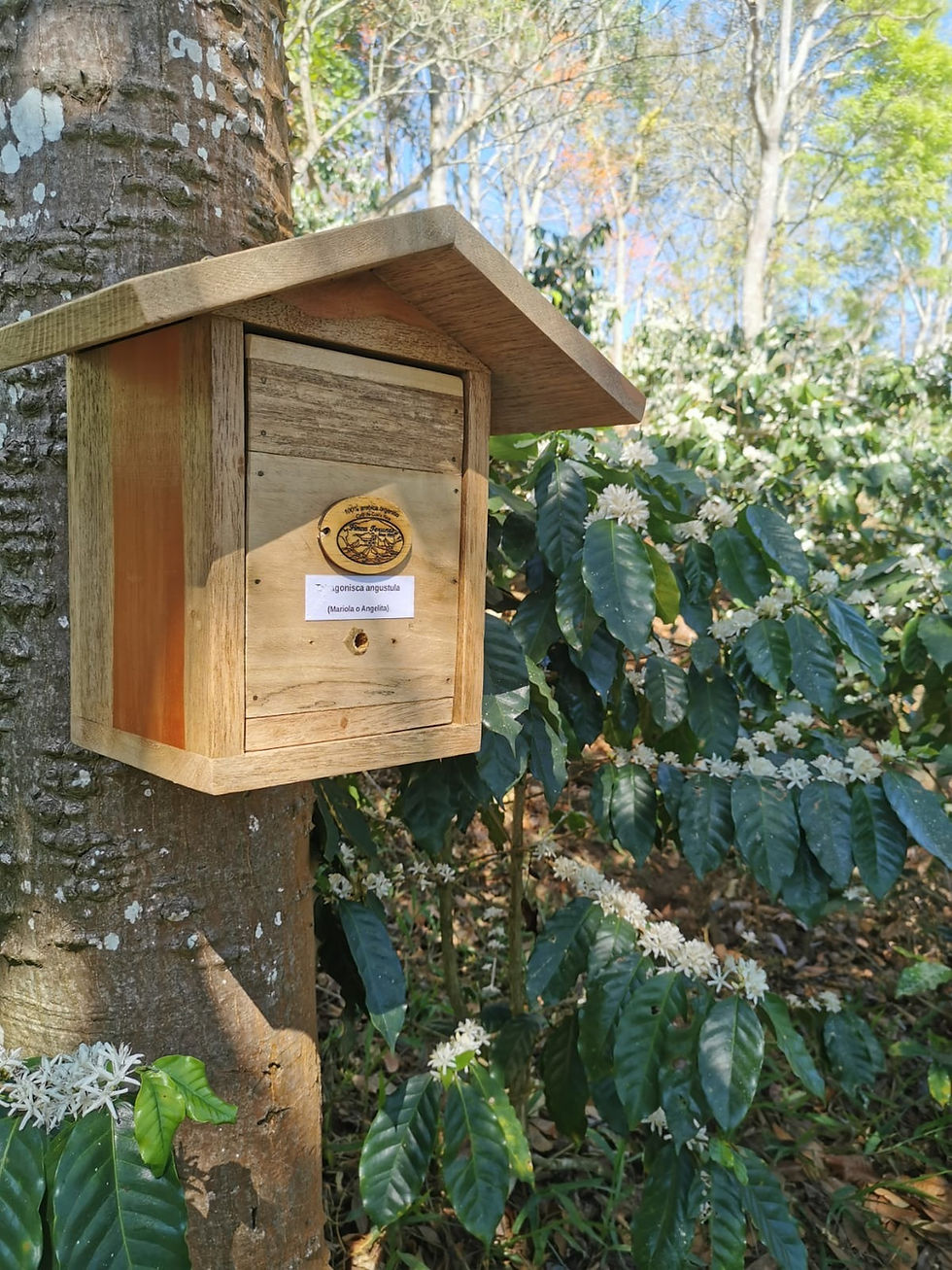Exploring the Unique World of Melipona Bees and Their Exotic Honey
- John Quam

- Mar 10, 2024
- 2 min read
Updated: Jan 31, 2025
The Melipona bee, commonly known as the "angel bee", holds a unique place in the world of apiculture, producing exotic honey famed for its health benefits. These stingerless bees, native to the tropical forests of Central and South America, have been part of human culture for centuries, with a history that intertwines with the lives and traditions of indigenous peoples.
The Historical Significance of Melipona Bees

Melipona bees have been cherished since ancient times, particularly by the Mayan civilization. The Mayans deeply respected these bees, not only for their gentle nature but also for the medicinal qualities of their honey. They called this honey "xunan kab" (royal lady bee) and integrated it into their religious rituals, cuisine, and traditional medicine. This connection marked one of the earliest recognitions of the unique properties of Melipona honey.
In pre-Columbian times, Melipona beekeeping, or "Meliponiculture", was a well-established practice. The Spanish conquest in the 16th century, however, brought European honeybees to the Americas, which gradually overshadowed the indigenous Melipona bees. Despite this, Meliponiculture persisted in some remote regions, kept alive by indigenous communities.
The Unique Characteristics of Melipona Honey
What makes Melipona honey so special? Firstly, it's rare. These bees produce significantly less honey than their European counterparts, making Melipona honey a scarce commodity. But it's not just about scarcity; the composition and properties of this honey are what truly set it apart.
Melipona honey is rich in water, leading to a unique, runnier texture compared to typical honey. Its taste is distinctively sweet, with a wide variety of flavors influenced by the tropical flowers visited by the bees.
Health Benefits
The health benefits of Melipona honey are remarkable. It has been found to contain a higher concentration of antioxidants compared to regular honey. Antioxidants are vital in combating free radicals, which can cause chronic diseases and aging.
Furthermore, Melipona honey exhibits strong antibacterial properties, even more potent than some varieties of regular honey. This makes it incredibly effective in wound healing and as a treatment for certain skin conditions. Its anti-inflammatory properties also make it beneficial for reducing throat irritation and respiratory conditions.
Current Status and Challenges
Despite its historical and cultural significance, the Melipona bee faces numerous challenges. Habitat destruction due to deforestation, competition with European honeybees, and climate change are some of the primary threats. Conservation efforts are crucial to protect these bees and their unique contribution to biodiversity and traditional practices.
Melipona bees' honey is not just a sweet treat; it's a link to ancient cultures, a testament to the rich biodiversity of the Americas, and a potential powerhouse of health benefits. As awareness and appreciation of this "angelic" honey grow, it becomes ever more vital to ensure the survival of these precious bees and their ancient art of honey production.
You can have your own Melipona Beehive. Stop by and Visit Jaime and see these bees at work. They are amazing and a beautiful addition to any garden area.








Comments